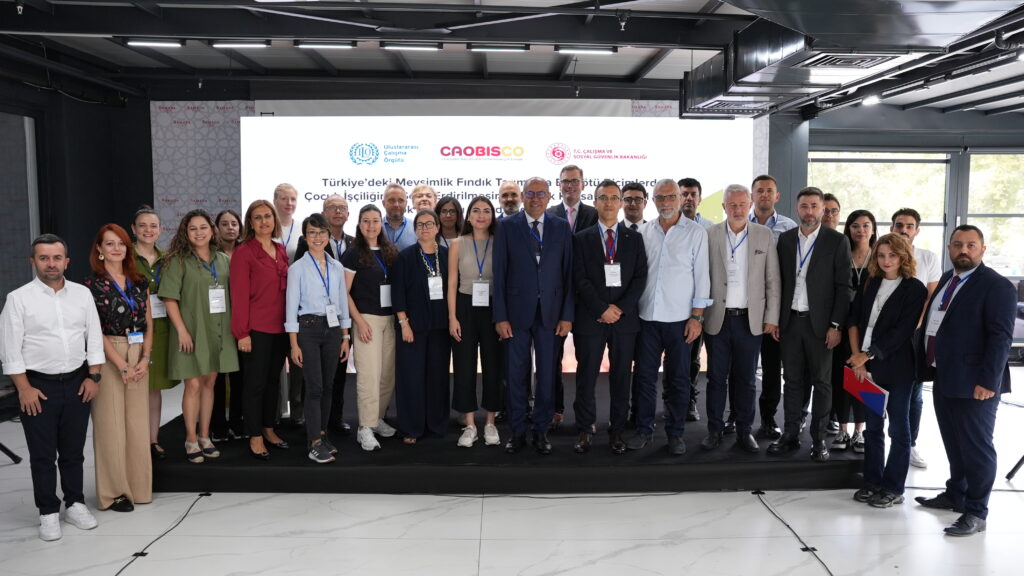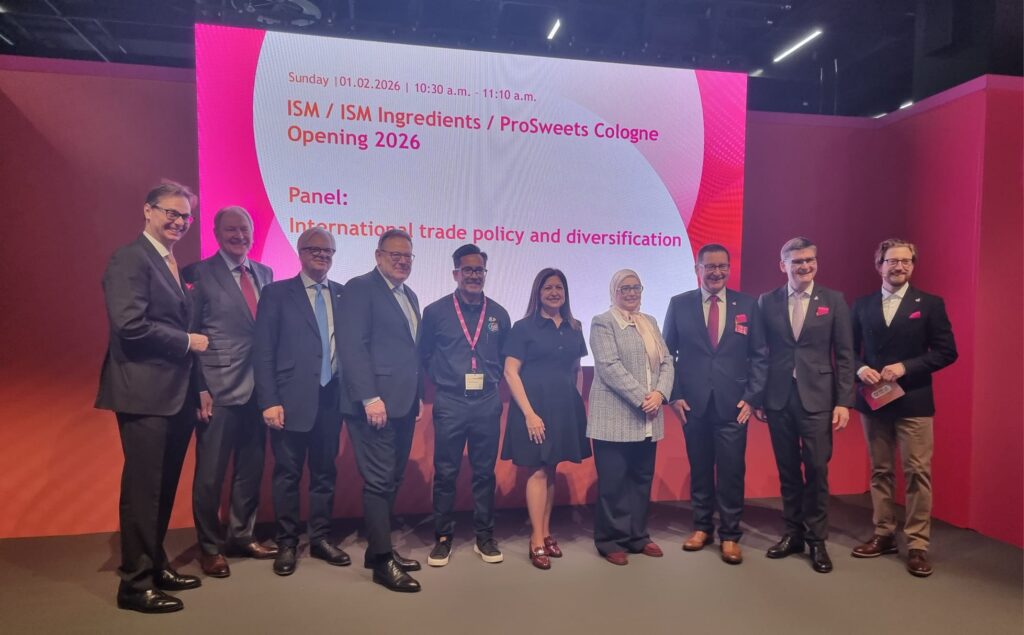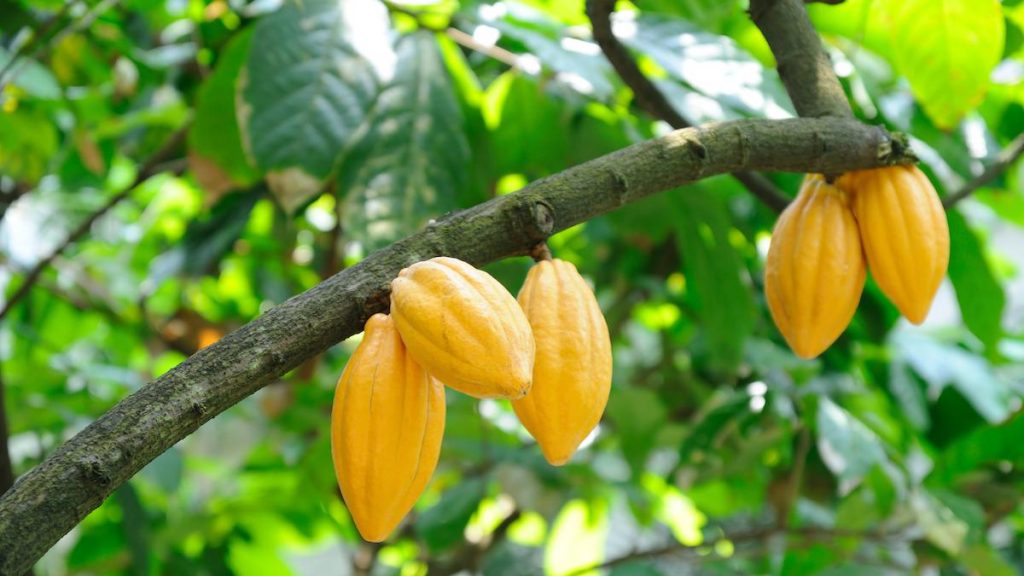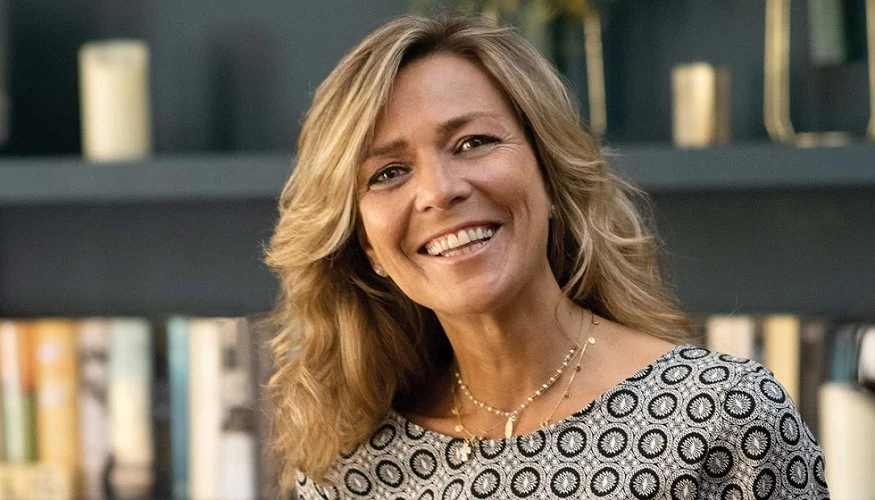Press Release: CAOBISCO and ILO Strengthen Commitment to Eliminate Child Labour in Hazelnut Harvesting in Türkiye

Brussels, August 2025 – A CAOBISCO delegation joined the International Labour Organization (ILO) in Türkiye’s Black Sea region this August to review progress under the long-standing CAOBISCO–ILO Public-Private Partnership (PPP) aimed at eliminating child labour in seasonal hazelnut agriculture.
Launched in 2013, the initiative represents CAOBISCO’s longest-running external partnership. The project entered Phase V in January 2024, which runs until December 2026, marking a strategic shift towards institutional sustainability, resilience, and the integration of its achievements into local and national frameworks. Importantly, in 2024 Türkiye was granted the Alliance 8.7 “Pathfinder Country” status, underlining its commitment to achieving the UN Sustainable Development Goal 8.7 on eliminating child labour
Field Visit 2025: Ordu and Samsun
The field visit coincided with the harvest season, which this year faced challenges due to frost in April. The CAOBISCO delegation included representatives from BDSI, Fazer, Ferrero and the CAOBISCO Secretariat.
The ILO delegation, led by Mr. Yasser Hassan (ILO Türkiye Director), was joined by project manager Ms. Ayşegül Özbek Kansu, Mr. Suat Dede among others from the Ministry of Labour and Social Security (MoLSS), and Mr. Ömer Dede, Secretary General of Pikolo Association, which implements the activities.
During the two-day mission in Ordu and Samsun, the delegation:
- Met with regional governors, Mr. Muammer Erol in Ordu, Mr. Orhan Tavlı in Samsun and the Mayor of Samsun Metropolitan Municipality, Mr. Halit Doğan, to discuss the importance of institutional capacity and local involvement.
- Visited Kızılot Primary School and the Saraycık METIP area, engaging with principals, teachers, education staff, and children benefiting from project-supported schooling during the harvest season.
- Observed the living and working conditions of seasonal migrant families through visits to a garden in Terme (Samsun) and an improved living settlement in Tepecik (Ordu).
Voices from participants:
Dr. Carsten Bernoth, Director General of BDSI (Bundesverband der Deutschen Süßwarenindustrie) and CAOBISCO Board Member, emphasized the tangible progress:
“We are in the 12th year of the ILO-CAOBISCO project to combat child labour during the hazelnut harvest on the Turkish Black Sea coast. The on-site visit shows that the objectives of the project have been achieved in important respects. There’s clear acknowledgement of the needs of the harvesting communities and a robust model to address those needs. The engagement with central, district and local authorities has shown clear commitment to tackle child labour and migrant communities’ conditions, through important legislative milestones and in alignment with the Pathfinder Country commitment for UN Sustainable Development Goal 8.7.”
Hanna-Mari Polvi, Senior Manager, Group Procurement, Fazer, highlighted the long-term impact:
“It was encouraging to see the long-term results of the project on the ground, and the impact that it has on the everyday lives of migrant workers and their children. Engagements with public administration clearly showed that a strong dialogue has been established with government, and that development needs within the seasonal agriculture sector in Türkiye are being acknowledged.”
Alicia Bellón, Sustainability Manager at CAOBISCO, underlined the broader meaning of the partnership:
“Since its launch in 2013, this project has been more than just a partnership. It has been a demonstration of what can be achieved when industry, international organizations, and national stakeholders work side by side. Over the years, the project has built networks, supported children and families, and raised awareness that protecting children’s rights is not only a moral imperative, but also a foundation for sustainable, ethical supply chains”
About the Project
The CAOBISCO–ILO PPP is the first initiative of its kind by the ILO Office for Türkiye, combining capacity building, direct intervention, and awareness raising to combat child labour in seasonal hazelnut harvesting. Since 2013, the project has reached nearly 12,000 children and withdrawn or prevented over 9,700 children from hazardous labour.
Phase V (2024–2026) seeks to reach a further 4,500 children, while ensuring the sustainability of interventions through institutional handover strategies.
Related news

ISM Cologne 2026: Tobias Bachmüller, CAOBISCO President, Calls for an Open and Predictable EU Trade Policy to Secure the Future of Europe’s Confectionery Sector










